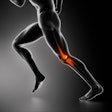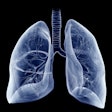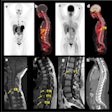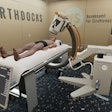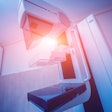
Editor's note: In his regular column, Europe's very own maverick radiologist, Dr. Peter Rinck, addresses the latest controversial topic. Find out now what's on his mind.
I admit that I have used have used the terms "MR scanner" and "MR scanning" of a patient. It's so easy to do, and everybody around accepts it. The problem is that magnetic resonance machines are not scanners. They are equipment, contraptions, apparatuses (as ugly as it sounds), perhaps even imagers or whoppers, but they don't scan the body of a patient in the real and original sense of the word.
 Dr. Peter Rinck, PhD, Maître de Conférence/adjunct professor of medical imaging at the University of Mons, Belgium.
Dr. Peter Rinck, PhD, Maître de Conférence/adjunct professor of medical imaging at the University of Mons, Belgium.Originally, a scanner was a zigzagging, moving scintillation camera used in nuclear medicine to record radiation in the body of a patient: the scintiscan, abbreviated simply "scan." If you had problems with your thyroid, you would get a scan with radioactive iodine or technetium to detect overactive or less active areas in the gland. Or a whole-body scan was used to check for cancer spread to other areas of the body. In the early years after the invention, printout was numbers, ciphered measurement next to measurement, with a clattering line printer. Later these numbers were color-coded in small dots; red was for a hot spot of high enrichment.
With the advent of computers in x-ray examinations, the term was also applied to computerized axial x-ray tomography: CAT scanners.
To scan means to make an intensive examination of a small area or to make a thorough search of a wider area; you can scan the horizon or the pages of a book. Medical scanners traverse the body with an active or passive sensing device and collect data. However, scanning, per se, does not mean imaging. It's the step before imaging.
There have been major controversies concerning this term. I even know of a legal procedure in the U.S. with respect to a patent and other publications, using the word "scanning" in the context of MRI. Somebody had claimed that scanning for T1 changes in tissues was the same as imaging. It was not. The judge went back to the roots of the word:
"At no place in the patent application, or in any other documents in evidence that were written before the patent was issued, does the word 'imaging' or any derivate or synonym appear. For reasons more fully developed [elsewhere], plaintiffs' arguments that passages in the application somehow refer to imaging are, to put the point mildly, interpretations that the words will not bear."1
This was written in 1986. During the last 25 years, daily common medical and lay language has changed. Semantic changes happen although some people observe them emotionally and don't accept them. The meaning of words change, the sense of a word expands, sometimes even turns to the contrary.
We have learned about another misapprehension at medical school: "I've got the flu." Well, no, actually you've caught a cold.
What did we learn at school today? "She should get an MRI scan." No, she should get an MR exam.
The language train has left the station a long time ago, and everybody uses "MR scan." I will do the same -- misuse the word, as everybody else will. But it doesn't hurt to be aware of the difference, especially when the distinction is important.
Reference
1Keeton, District Judge: United States District Court, District of Massachusetts, Civil Action No. 82-2751-K. Opinion January 10, 1986.
The comments and observations expressed herein do not necessarily reflect the opinions of AuntMinnieEurope.com, nor should they be construed as an endorsement or admonishment of any particular vendor, analyst, industry consultant, or consulting group.








